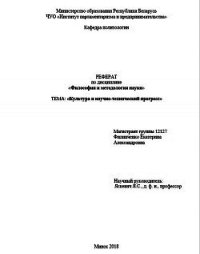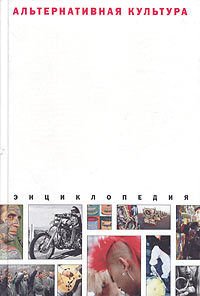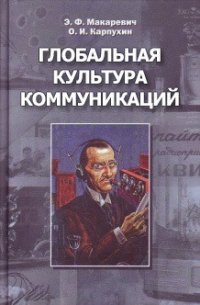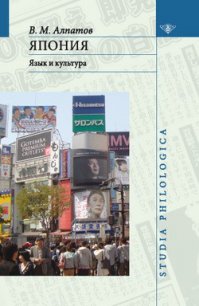Чань-буддизм и культура психической деятельности в средневековом Китае - Абаев Николай Вячеславович (читать книги онлайн без .txt) 📗
Бай-чжан цин-гуй (Свод правил Бай-чжана). — В кн.: Тайсё Дайдзокё (Китайская Трипитака, изданная в эру Тайсё). Токио, 1924–1932. Т. 48.
Дао-дэ цзин (Книга о Дао и Дэ). — В кн.: Чжуцзы цзичэн (Собрание классических текстов). Т. 3. Пекин, 1956.
Дао-сюань. Сун гао-сан чжуань (Биографии высоких монахов, составленные в эпоху Сун). — В кн.: Тайсё Дайдзокё. Т. 50.
Да-чэн ци синь лунь (О пробуждении веры в махаяне). — В кн.: Тайсё Дайдзокё. Т. 32.
Дао-юань. Цзин-дэ чуань дэн лу (Записи о перадаче Светильника, составленные в эру Цзин-дэ). — Тайсё Дайдзокё. Т. 51.
Ле-цзы. — Чжуцзы цзичэн. Т. 3.
Лунь-юй (Беседы и высказывания). — В кн.: Чжуцзы цзи-чэн. Т. 1. Пекин, 1954.
Мэн-цзы. Там же.
Риндзай-року (Записи бесед Линь-цзи). — В кн.: Дзэн-но гороку (Записи бесед дзэнских патриархов). Т. 10. Токио, 1972.
Фо-и цзя-цаин (Сутра драгоценного буддийского учения). — В кн.: Тайсё Дайдзокё. Т. 12.
Фо-цзу тун-цзи (Сводный биографический справочник буддийских патриархов). — В кн.: Тайсё Дайдзокё. Т. 49.
Хуай-нань-цзы. — В кн.: Чжупзы цзичэн. Т. 7. Пекин, 1957.
Хуэй-кай. У-мэнь гуань (Застава без ворот). — В кн.: Тайсё Дайдзокё. Т. 48.
Чжуан-цзы. — В кн.: Чжу-азы цзичэн. Т. 3.
Чжэнь-чжоу Линь-цзи Хуэй-чжао чань-ши юй-лу (Записи бесед чаньского наставника Линь-цзи Хуэй-чжао из Чжэнь-чжоу). — В кн.: Чань-сюэ да-чэн (Большое собрание чаньских текстов). Кн. 2. Тайбэй, 1967.
Уи Хакудзю. Дзэн-сю си кэн-кю (Исследования по истории школы чань). T. I. Токио, 1939.
Юань-у Фо-го чань-ши юй-лу (Записи бесед чаньского наставника Юань-у Фо-го). — В кн.: Тайсё Дайдзокё. Т. 47.
Ян-чжу. — В кн.: Чжуцзы цзичэн. Т. 3.
Abajew N. Karate: Ein bisschen Geschichte. — Neues Leben, 1981, N 26, Juni 24.
Abe M. Man and Nature in Christianity and Buddhism. — In: Man and Nature. Calcutta, 1978.
Abrahamian L.H. On Malinowski's Magic. — Current Anthropology, 1977, vol. 18, N 1, March.
Anand B. K., Ghkina G. S., Singh B. Some aspects of EEG studies in Yogis. — In: Altered States of Consciousness. N.Y., 1969.
Beatrix P. Bibliographie du Buddhisme Zen. Bruxelles, 1969.
Весker E. Psychotherapeutic observations on the Zen doctrine. — Psychol., I960, vol. 3, N 2.
Beсker E. Zen: A rational critique. N.Y., 1961.
Benоit H. The Supreme Doctrine: psychological studies in Zen Thought. N.Y., 1955.
Berry Th. Religions of India. N.Y. — L., 1971.
Вlоfeld J. The Zen teaching of Huang Po. L., 1958.
Вlуth R.H. Zen and Zen classics. Vol. 1,2,3,7. London — Tokyo, 1960–1966.
Вlуth R.H. Munonkan (Zen and Zen classics. Vol. 4). Tokyo, 1966.
Вlуth R.H. Oriental Humour. Tokyo, 1959.
Воdde D. Chinese First Unifier. Leiden, 1938.
Buddhaghosa. Manorathapurani. Commentary on the Anguthara-nikaya / Ed. by M. Walleser, H. Корр. Vol. 1. L., 1924.
Buddhaghosa. Manorathapurani. Commentary on the Anguthara-nikaya / Ed. by H. Корр. Vol. 2–5, L., 1930–1957.
Chan Wing-tsit. Chinese Theory and Practice. — In: Philosophy and Culture East and West. Honolulu, 1962.
Chan Wing-tsit. Chinese Theory and Practice, with special reference to Humanism.-In: Chinese Mind. Honolulu, 1967.
Chan Wing-tsit. Synthesis in Chinese Metaphyisics. — Ibid.
Chan Wing-tsit. The Individual in Chinese Religions. — Ibid.
Chan Wing-tsit. Religious trends in modern China. N. Y., 1953.
Chan Wing-tsit. Transformation of buddhism in China. — Philosophy East and West, 1957, vol. 7, N 3–4.
Chang Chen-chi. The practice of Zen. N.Y., 1959.
Chang Сhung-уuan. An introduction to Taoist Yoga. — Review of Religion, 1956, vol. 20.
Chang Chung-yuan. Creativity and Taoism. N.Y., 1963.
Chang Chung-yuan. The Nature of Man as Tao. — In: Man and Nature. Calcutta, 1978.
Сh'en K.S. Buddhism in China. Princeton, 1964.
Сhen K. The Chinese Transformation of Buddhism. Princeton, 1973.
Chen Shin-hsiang. Chinese poetics and Zenism. — Oriens, 1957, vol. 10, N 1.
Соnze E. Buddhism: Its essence and development. N. Y., 1959.
Demieville P. La penetration du Bouddhisme dans la tradition Chinoise. — Cahiers d'histoire mondiale, 1956, vol. 3.
Demieville P. Bouddhisme et la guerre. — In: Choix d'efcude bouddhiques. Leiden, 1973.
Dumoulin H. The development of Chinese Zen after the sixth patriarch. N.Y., 1953.
Dumoulin H. A history of Zen Buddhism. N.Y., 1963.
Eliade M. Rites and symbols of initiation. N.Y., 1965.
Ennin. Ennin's Diary during his travels in T'ang China. Trans. by E. Reischauer. N.Y., 1955.
Pоrke A. The Chinese sophists. — J. of the China Branch of the Royal Asiatic Society, Shanghai, 1901–1902, vol. 34.
Pung Yu-lan. The spirit of Chinese philosophy. L., 1947.
Pung Yu-lan. A history of Chinese philosophy. Vol.2. Princeton, 1953.
Granet M. Chinese civilisation. N.Y., 1930.
Granet M. La pensee chinoise. P., 1934.
Hakeda Y. The awakening of faith. N.Y., 1967.
Herrigel E. Zen in the art of Archery. N.Y. — L., 1953. (A foreword by D.T. Suzuki.)
Hоkart A. M. The Life-giving Myth and other essays. L., 1970.
Hu Shih. Development of Zen Buddhism in China. — The Chinese Social and political Science Review, 1932, vol. 15, N 4.
Hu Shih. Ch'an (Zen) Buddhism in China: Its history and method. — Philosophy East and West, 1953, vol. 3, N 1.
Hu Shi. Development of Zen Buddhism in China. — In: Anthology of Zen.. N.Y. — L., 1961.
Huizinga J. Homo Ludens. Hamburg, 1966.
Humphreys Ch. The Way of Action. L., 1960.
Hуers M.C. The ancient Zen master as clown-figure and comic midwife. — Philosophy East and West, Honolulu, 1970, vol. XX, N1.
Hуers M.C. Zen and the comic spirit. L.,1974.
Jones G. The Pour Truths and the three marks. — In: Religion, L., 1976, vol.6, pt. 2.
Kalupahana D. Causality: the central philosophy of Buddhism, Honolulu, 1975.
Kasamatsu A.. Hirai T. An EEG study on the Zen meditation. — In: Altered States of Consciousness, N. Y., 1969.
Кasulis Th. The Two Strands of Nothingness in Zen Buddhism. — Intern. Philos. Quarterly, N.Y., 1979, vol. 19, N 1.
Кennet J. Selling water by the river. N.Y., 1972.
Kim Yong Choon. Oriental Thought. Springfield. 1973.
Levi-Strausse C. Anthropologie Structurale. P., 1958.
Levi-Strausse C. Les Structures elementaires de la parente. P., 1969.
Linssen R. Le Zen Sagesse d'Extreme-Orient: un nouvel art de vivre? Verviers, 1969.
Lu Сhi. The Art Letters. Trans. by E.R. Hughes. N. Y., 1951.
Lu К'uan-yu. Secrets of Chinese meditation. L.. 1964.
Lu K'uan-yu. Taoist yoga. Alchemy and immortality. L., 1970.
Nakamura H. Ways of thinking of Eastern peoples. Honolulu, 1964.
Nivisоn D. The problem of «knowledge» and «action» in Chinese thought since Wang Yang-ming. — In: Studies in Chinese Thought. Chicago, 1953.
Nukaria K. The religion of the Samurai. L., 1913.
Pасhоw W. Zen Buddhism and Bodhidharma. — The Indian Historical Quarterly, 1956, vol. 32, N 2–3.
Plopper C.H. Chinese religion seen through the proverb. N. Y., 1969.
Prip-Moller Y. Chinese Buddhist monasteries. Copenhagen, 1937.
Pоrkert M. The theoretical foundation of Chinese medicine. Cambridge (Mass.) — London, 1974.
Reiсhelt K.L. Meditation and piety in the Far East. L., 1953.
Rоss N.W. Three ways of Asian Wisdom. N.Y., 1966.
Satо К. How Zen conceives of mind. — In: Asian psychology / Ed. by Gr. Murphy. L.B. Murphy. N.Y., — L., 1968.
Shaku S. The practice of Dhyana: — In; Anthology of Zen. N.Y. — L., 1961.
Shibayama Z. A flower does not talk. Rutl.-Tokyo, 1971.
Suzuki D.T. Essays in Zen Buddhism. Vol.1–3. L., 1927–1953.
Suzuki D.T. Studies in the Lankavatara Sutra. L., 1930.
Suzuki D.T. The training of the Zen buddhist monk. Kyoto, 1934.




